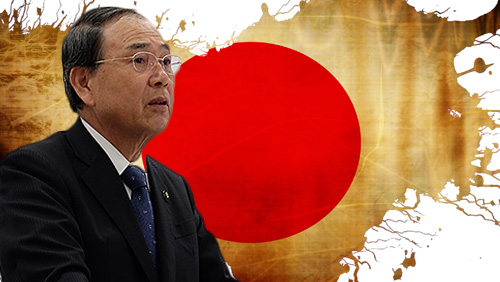His favorite office activity has landed Japanese mayor Morichika Saito in hot water.
 The mayor of Iizuka City in the Fukuoka prefecture found himself, along with Deputy Mayor Hideaki Tanaka, in the middle of a public backlash after reports surfaced that he was playing mahjong “during the office hours of general employees,” Japanese daily The Mainichi reported.
The mayor of Iizuka City in the Fukuoka prefecture found himself, along with Deputy Mayor Hideaki Tanaka, in the middle of a public backlash after reports surfaced that he was playing mahjong “during the office hours of general employees,” Japanese daily The Mainichi reported.
Saito admitted he had been gambling “since becoming mayor in 2006,” but the mayor said “the only time he did so during weekday daylight hours was one time in January” 2016. Tanaka, meanwhile, has reportedly been gambling “during the day on weekdays for some years now.”
According to reports, the two bet around JPY10,000 (USD87.63) per day. Among their co-players was a funeral business operator who was selected to manage one of the city’s public facilities starting this April.
Saito held a press conference in December, where he said: “How many people are there who play mahjong without gambling on it?”
The statement resulted in 1,000 protests and complaints, which ultimately led to Saito’s resignation.
“I thought it best if I stepped down to settle the situation,” the mayor said in a press conference. Saito and Tanaka are resigning on January 31.
A mayoral election will be held after 50 days, but Saito denied he will seek to be reelected.
Except for horse racing and “keirin” bicycle racing, gambling is still considered illegal in Japan. However, gambling supporters may only have a bit of waiting left before the country’s ban on casino gambling will be relaxed.
According to The Japan Times, a team from the ruling Liberal Democratic Party is gearing up to start working on the second stage bill, which will set out the rules for Japan’s soon-to-emerge casino industry.
The team, led by Lower House member Takeshi Iwaya, “will meet for the first time later this month” and discuss issues concerning the establishment of so-called integrated resorts (IR) facilities.
The IR bill, approved in December, has been dubbed an ‘enabling’ bill, in that its sole purpose is to remove the ban on casino gambling from Japan’s constitution. Following the IR bill’s enactment, Japan will have one year in which to craft secondary legislation that will spell out casino regulation, taxation, the number of casinos and which cities will host them.
Japan’s casino tender is expected to be a savage affair, as nearly every international casino operator worth its salt has pledged to make a full court press to win one of the prized casino concessions.